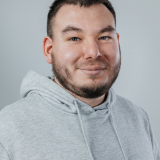PROJECT LEADER
Deep learning for computer-assisted perinatal care
Deep learning-based computer-assisted tools to improve perinatal care
FINISHED

2022
|
2023
RESEARCH AREAS
About project
This project aims to develop deep learning-based computer-assisted tools to improve perinatal care. Specifically, two different branches are investigated:
- a) fetal ultrasound – the goal is to develop a method for fetal ultrasound video analysis that is able to automatic fetal biometry measurements and estimates the fetal birth weight at various gestational ages using multimodal data.
- b) fetoscopic laser surgery – the goal is to develop a real-time method that is able to segment and visualize placental vessels during fetoscopic laser photocoagulation for Twin-to-Twin Transfusion Syndrome (TTTS).
Members
Our publications & software
Publications
Journal articlesS. Płotka, K. Pustelnik, P. Szenejko, K. Żebrowska, I. Rzucidło-Szymańska, N. Szymecka-Samaha, T. Łęgowik, K. Kosińska-Kaczyńska, P. Korzeniowski, P. Biliński, A. Khalil, R. Brawura-Biskupski-Samaha, I. Išgum, C.I. Sánchez, A. Sitek, "Direct estimation of fetal biometry measurements from ultrasound video scans through deep learning", American Journal of Obstetrics & Gynecology MFM, 2025.
S. Płotka, T. Szczepański, P. Szenejko, P. Korzeniowski, J. Rodriguez Calvo, Asma Khalil, A. Shamshirsaz, R. Brawura-Biskupski-Samaha, I. Išgum, C. I. Sánchez, A. Sitek , "Real-time placental vessel segmentation in fetoscopic laser surgery for Twin-to-Twin Transfusion Syndrome", Medical Image Analysis, 2025; 99.
PHD thesesS. S. Płotka, "Enhancing prenatal care through deep learning", University of Amsterdam, The Netherlands, 2024, ISBN: 978-94-93330-94-8.
S. S. Płotka, M. K. Grzeszczyk, P. I. Szenejko, K. Żebrowska, N. A Szymecka-Samaha, T. Łęgowik, M. A Lipa, K. Kosińska-Kaczyńska, R. Brawura-Biskupski-Samaha, I. Išgum, C. I. Sánchez, A. Sitek, "Deep learning for estimation of fetal weight throughout the pregnancy from fetal abdominal ultrasound", American journal of obstetrics & gynecology MFM, 2023; 5 (12): 101182.
Software


